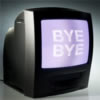
The transition to digital broadcast television has been delayed until June, causing confusion because some broadcasters already switched as scheduled on February 17.
One company is helping consumers quickly adjust—proof that the private sector is doing a better job preparing the public for the switch than the federal government has. Retrevo’s Good Neighbor Coupon Exchange Program connects those who have unused government-issued $40 coupons for digital signal converter boxes with those who need them.
The Sunnyvale, California-based electronics product review site has a DTV page where one can either give a coupon to others or find one. The prospective giver or recipient enters an e-mail address and a ZIP code, and Retrevo then connects people living near each other so they can make an exchange. The transaction is gratis; no buying or selling allowed.
Success without Government
The exchange program, experts say, bests the government’s widely panned digital TV converter box program—which has cost taxpayers more than $1 billion while leaving many Americans who lack cable or satellite TV in the dark.
“This is a good example of how human ingenuity can solve a shortage,” said Steve Titch, a telecom analyst for the Reason Foundation in Los Angeles. “It’s the Internet that makes this possible, and we don’t need to wait around for the government.
“This is the way that market forces work,” Titch said. “When there’s a need, the public will find a way to work things out without government policy. This alleviates the dependence on the government—maybe it shouldn’t be the fount of everything.”
Unnecessary Requests
Part of the problem with the government-sponsored program was that it gave the coupons to anyone who requested them, regardless of whether the coupons were needed. That meant people with cable or satellite feeds, which do not require a new converter box, were requesting and getting coupons, according to Daniel Ballon, a technology policy fellow at the San Francisco-based Pacific Research Institute.
“This is a fairly common scenario,” Ballon said. “When the government makes something free, people feel they are entitled to it, even if they don’t need it.”
With people who didn’t need the coupons getting them, the government ran out, leading to the delay in the conversion to the digital TV signals.
Opposition to Further Delays
Ballon says he doesn’t expect a further delay in the conversion to digital signals. Verizon, which is aggressively expanding its FiOS television effort, is a strong proponent of digital TV because it complements the fiber technology behind FiOS, he notes.
The company is lobbying hard to get the conversion made on the new schedule and “will be very disappointed if it doesn’t happen [in June],” Ballon said.
Phil Britt ([email protected]) writes from South Holland, Illinois.
Private Firm Solves U.S. DTV Coupon Woes
Phil Britt
The transition to digital broadcast television has been delayed until June, causing confusion because some broadcasters already switched as scheduled on February 17.
One company is helping consumers quickly adjust—proof that the private sector is doing a better job preparing the public for the switch than the federal government has. Retrevo’s Good Neighbor Coupon Exchange Program connects those who have unused government-issued $40 coupons for digital signal converter boxes with those who need them.
The Sunnyvale, California-based electronics product review site has a DTV page where one can either give a coupon to others or find one. The prospective giver or recipient enters an e-mail address and a ZIP code, and Retrevo then connects people living near each other so they can make an exchange. The transaction is gratis; no buying or selling allowed.
Success without Government
The exchange program, experts say, bests the government’s widely panned digital TV converter box program—which has cost taxpayers more than $1 billion while leaving many Americans who lack cable or satellite TV in the dark.
“This is a good example of how human ingenuity can solve a shortage,” said Steve Titch, a telecom analyst for the Reason Foundation in Los Angeles. “It’s the Internet that makes this possible, and we don’t need to wait around for the government.
“This is the way that market forces work,” Titch said. “When there’s a need, the public will find a way to work things out without government policy. This alleviates the dependence on the government—maybe it shouldn’t be the fount of everything.”
Unnecessary Requests
Part of the problem with the government-sponsored program was that it gave the coupons to anyone who requested them, regardless of whether the coupons were needed. That meant people with cable or satellite feeds, which do not require a new converter box, were requesting and getting coupons, according to Daniel Ballon, a technology policy fellow at the San Francisco-based Pacific Research Institute.
“This is a fairly common scenario,” Ballon said. “When the government makes something free, people feel they are entitled to it, even if they don’t need it.”
With people who didn’t need the coupons getting them, the government ran out, leading to the delay in the conversion to the digital TV signals.
Opposition to Further Delays
Ballon says he doesn’t expect a further delay in the conversion to digital signals. Verizon, which is aggressively expanding its FiOS television effort, is a strong proponent of digital TV because it complements the fiber technology behind FiOS, he notes.
The company is lobbying hard to get the conversion made on the new schedule and “will be very disappointed if it doesn’t happen [in June],” Ballon said.
Phil Britt ([email protected]) writes from South Holland, Illinois.
Nothing contained in this blog is to be construed as necessarily reflecting the views of the Pacific Research Institute or as an attempt to thwart or aid the passage of any legislation.